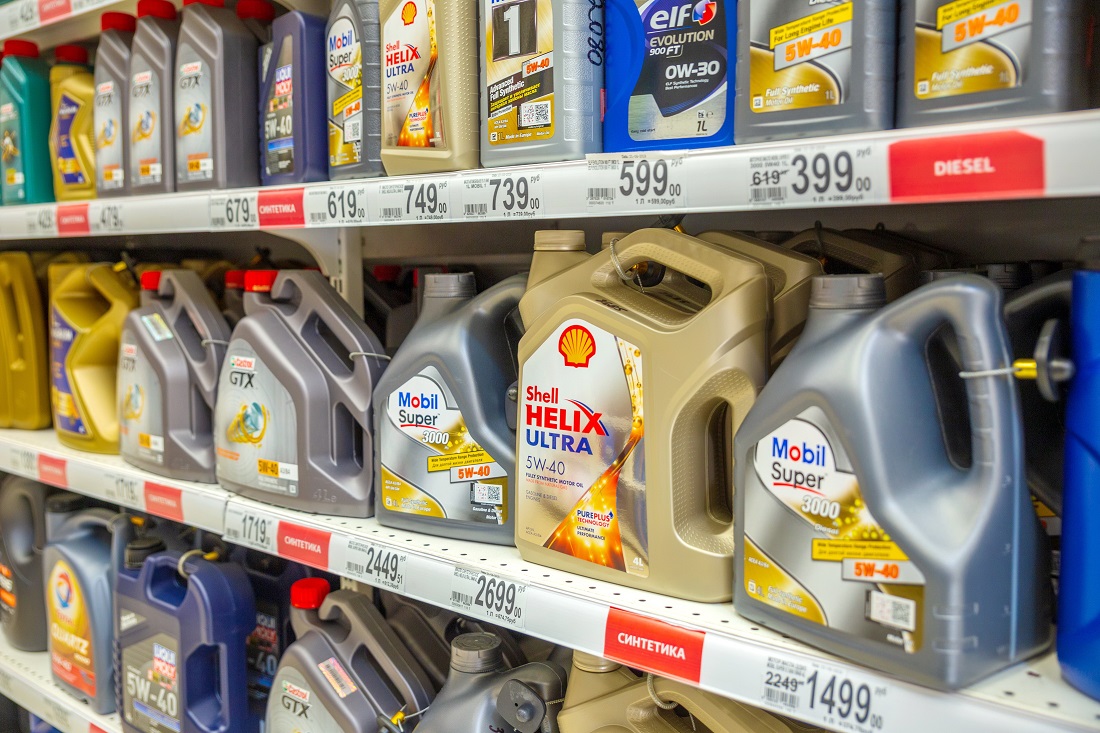MOSCOW – Russian motorists who purchase motor oil most often consider factors such as original equipment manufacturers recommendations, the oils viscosity and their personal experience with the product, as well as the price, a consultancy found.
Russian motorists choose a certain motor oil type for five main reasons: confidence in the producer and the brand, belief that the oil has the correct recommendations, and the products balance in price and quality, according to Ipsos, a marketing and French business consultants.
Shell, Mobil, Castrol and Lukoil are the leading motor oil brands favored by Russian motorists, according to Ipsos findings. Other popular motor oil brands in Russia include Elf, Liqui Moly, Zic, Total, Motul, Gazpromneft and Rosneft, along with OEM-branded products.
Additional key reason for motorists choices is whether the buyer considers the desired motor oil a high quality product, and with that comes a consideration that it is a form of protection from counterfeited products.
The Ipsos findings on Russian consumer preferences in the lubricant market are part of a series of surveys the consultancy conducted in 2018 and 2019 under the Game Changers tagline.
The survey also found that majority of the Russian motorists believe it is very likely they can bump into a counterfeited product. A smaller portion of the respondents said that they rarely see counterfeited products, or that they have never seen them.
When buying motor oil, Russians tend to trust recommendations by friends and relatives, and store consultants, and make the choice based on the fact that it is the cheapest oil that can be found for their cars, Alexander Yakovlev, Ipsos Moscow-based manager, told RPIs Global Lubricants conference here on Oct. 8.
In Russia, a motorist on average drives a vehicle 19,337 kilometers per year, while the vehicles average consumption of oil between oil changes is 4.94 liters. The average distance driven between oil changes is 10,829 km, according to Ipsos. The consultancy also found that the vehicle fleet in Russia is getting obsolete – around two thirds of the countrys 48 million units has mileage of up to 100,000 km each, while one third has mileage of over 100,000 km each.
The main criteria for the motor oil change is the distance driven, the recommendation by the OEMs and a preset time frame, like one year between oil changes, he said.
Quality wise, the majority of Russian motorists prefer synthetic motor oils. The consultancy found that over 50 percent of motorists prefer synthetic motor oil products, while 45 percent prefer semi-synthetics. Only 3 percent of the respondents indicated that they use mineral-based motor oils.
At the moment, the most favorable motor oil grade in Russia is 5W-40, the second most favorable is 5W-30 and the third most sought-after grade is 10W-40, Yakovlev said.
The consultancy also found that 70 percent of Russian consumers plan to buy the same motor oil brand already used to fill the engines crankcase, while 30 percent plan to use different motor oil brands.
Around 65 percent of the respondents usually buy the motor oil at one vendor and change it at a different place, while 35 percent of them buy the oil in the service station and change it there.
Most Russian car owners prefer to buy motor oil at a car parts store. Their second favorite place to buy motor oil at is an official dealership, while the third most popular is a car service shop.
Russian consumers also buy motor oils in supermarket retail shops, online or at the gasoline filling stations, he said.

Photo: Tramp57/Shutterstock